Film Development
Colto Fox Photo Lab processes analogue film in a variety of formats and development methods. Most common methods are able to be developed same-day in the Sydney lab.
Queue
| Film Development Commissions Status | !!! CLOSED !!! |
| Current Queue as of 26 May | Nothing queued. |
| Chemical Status | C-41(/E-6) Process: DOWN, batch date: 17/02/2024 B&W Process: UP, ready to mix |
Development Processes
- Standard Processes
- C-41 Colour Negative Film – Kodak
- B&W Negative Film – Kodak/Ilford
- Special Processes
- E-6 Colour Slide Film – Kodak
- B&W Reversal Cine Film – Foma
Film Formats
- Standard Formats
- 35mm Photographic Film
- 120/220 Photographic Film
- Special Formats
- 110 Photographic Film
- 4×5″ Photographic Film
- 10-30m 2x8mm Cine Film
Film Scanning
After the film is developed, it is digitally scanned for print or online publication.
Photographic film is cut into 6 frames per strip and carefully scanned at 3200 dpi, this is quite a lengthy process. Once scanned, it’s then digitally processed for colour correction, frame cropping and dust removal until it’s eventually exported into a suitable image format.
Cine film is run through a 8mm film editing machine which displays the footage frame-by-frame. These frames are captured in front of a digital camera with the option to either accurately capture them as an image sequence of each individual frame or a loosely recorded video with the frames moving live at a variable hand-cranked speed.
Available Processing Services
Colto Fox Photo Lab is open to processing any standard processes and formats listed above. Special processes/formats may be possible via prior consultation.
Postal services are currently unavailable for roll collection and negative/slide delivery. Pickup at a local monthly S² meet or other local meets (subject to availability) is free.
Pricing per roll
| Process | C-41 Process Colour Negative | E-6± Process Colour Slide | B&W Process Negative | C-41 Process Colour Negative |
| Format | 35mm/120 Format | 35mm/120 Format | 35mm/120 Format | 110§ Format |
| Dev Only | $22 | $37 | $27 | $27 |
| 800dpi Scan | $15 | $20 | $10 | $15 |
| 3200dpi 110/120 Scan (not 35mm) | $25 | $30 | $20 | $25 |
| 3600dpi 135 Scan | $40 | $50 | $30 | N/A |
± The E-6 process used here is not the official Kodak process but instead uses a mix of Kodak Black & White and C-41 chemicals to achieve a similar result. The colour temperature will look a lot colder than traditional E-6. This is a complex reversal process, the scan colour correction is also more difficult. Please ensure you have metered your photos correctly.
§ The 110 format processing is temporarily unavailable as the 3D-printed spool broke. The process was more difficult than 35mm for the proof-of-concept, but a new spool may simplify things.
Gallery
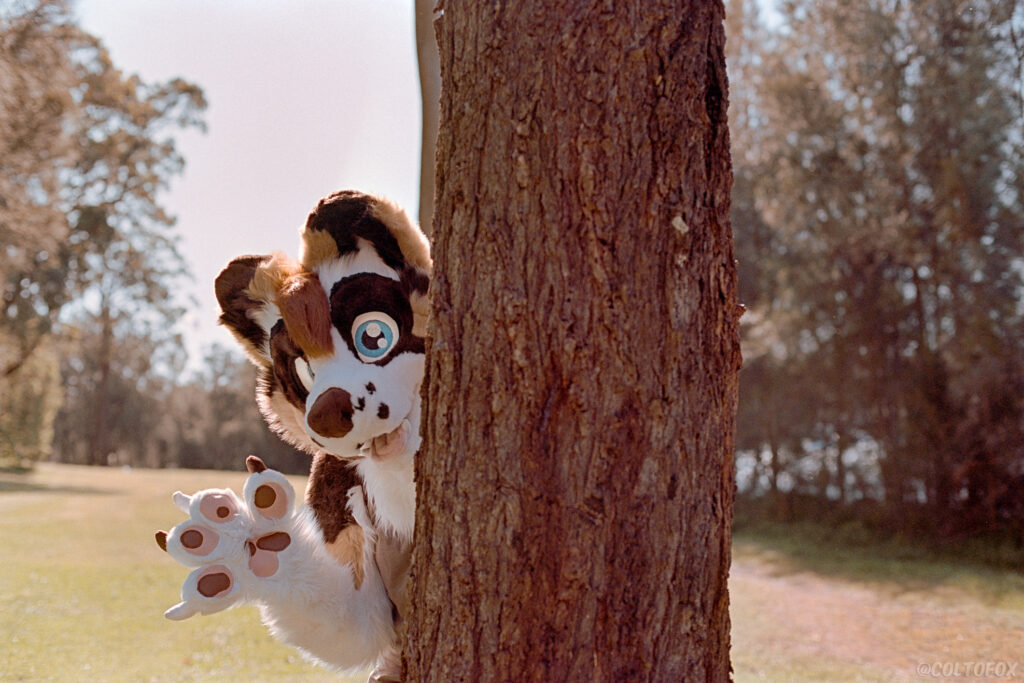
35mm C-41
- Photographer: @coltofox
- Subject: @PrusDoggo
- Film: Kodak Portra 160
- Focal Length: 50mm
- Film Speed: 160
- Camera: Canon EOS 5
- Scanner: Plustek 8200i
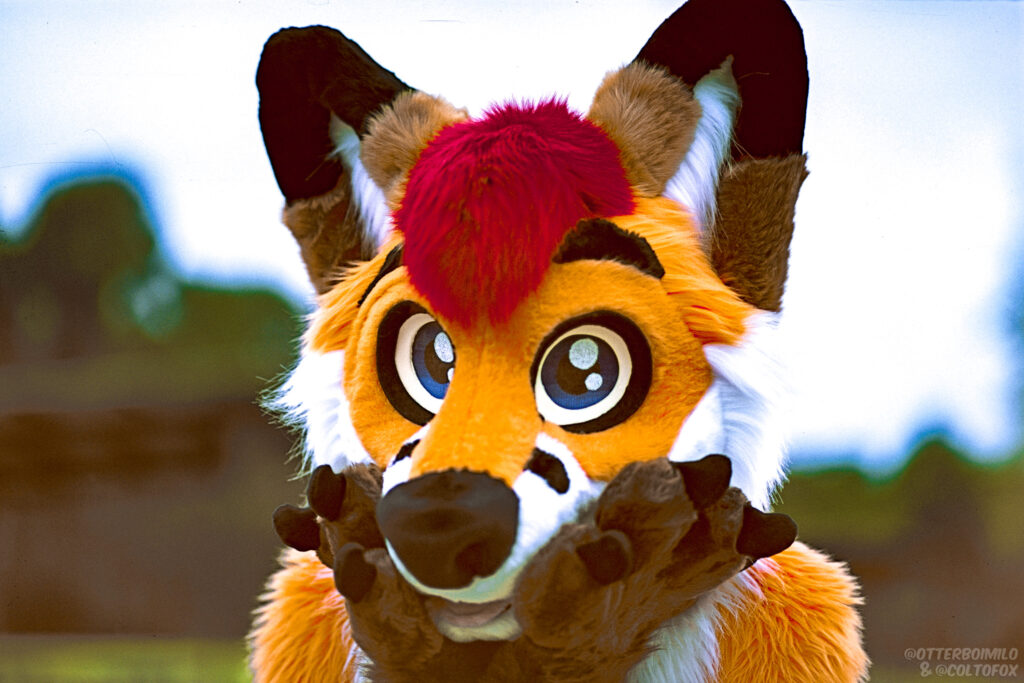
35mm E-6
- Photographer: @OtterBoiMilo
- Subject: @coltofox
- Film: Kodak Ektachrome E-100
- Focal Length: 85mm
- Film Speed: 100
- Camera: Canon EOS 5
- Scanner: Plustek 8200i
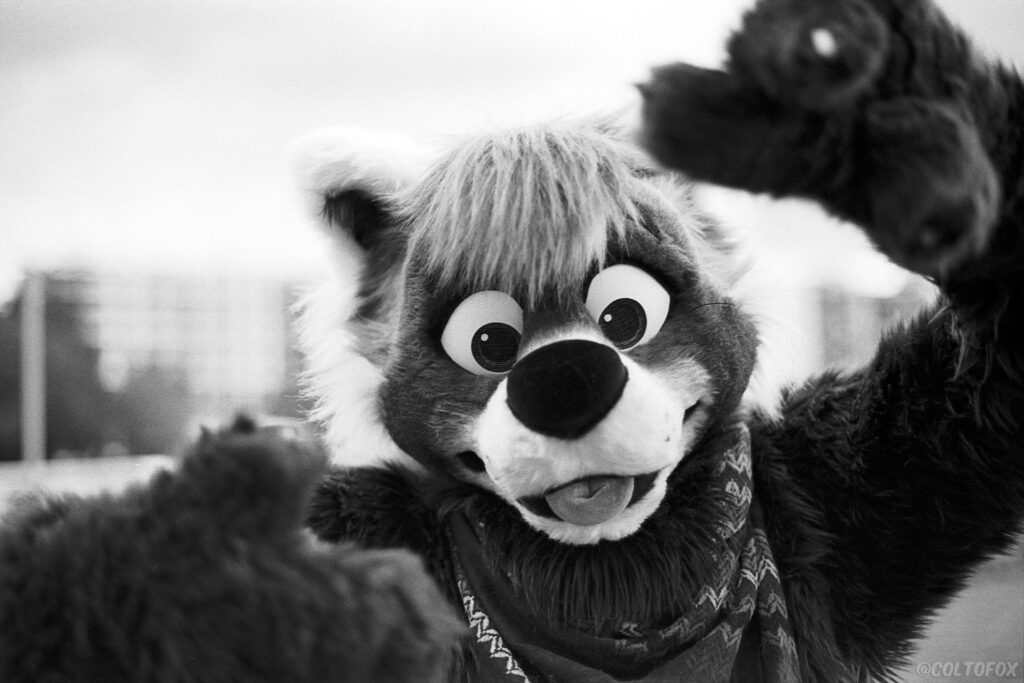
35mm B&W
- Photographer: @coltofox
- Subject: @PrincePanda89
- Film: Kodak Tmax 400
- Film Speed: 400
- Focal Length: 50mm
- Camera: Canon EOS 5
- Scanner: EPSON Perfection V600
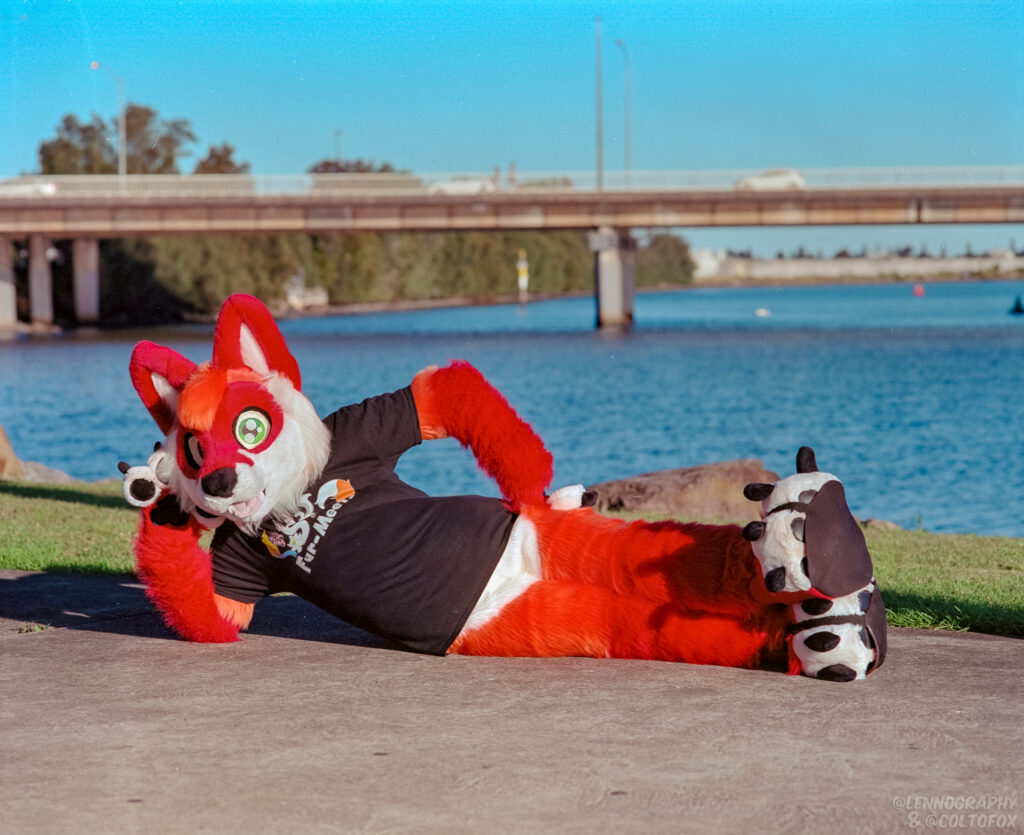
120 C-41
- Photographer: @Lennography
- Subject: @coltofox
- Film: Kodak Ektar 100
- Film Speed: 100
- Camera: Mamiya RB67
- Scanner: EPSON Perfection V600
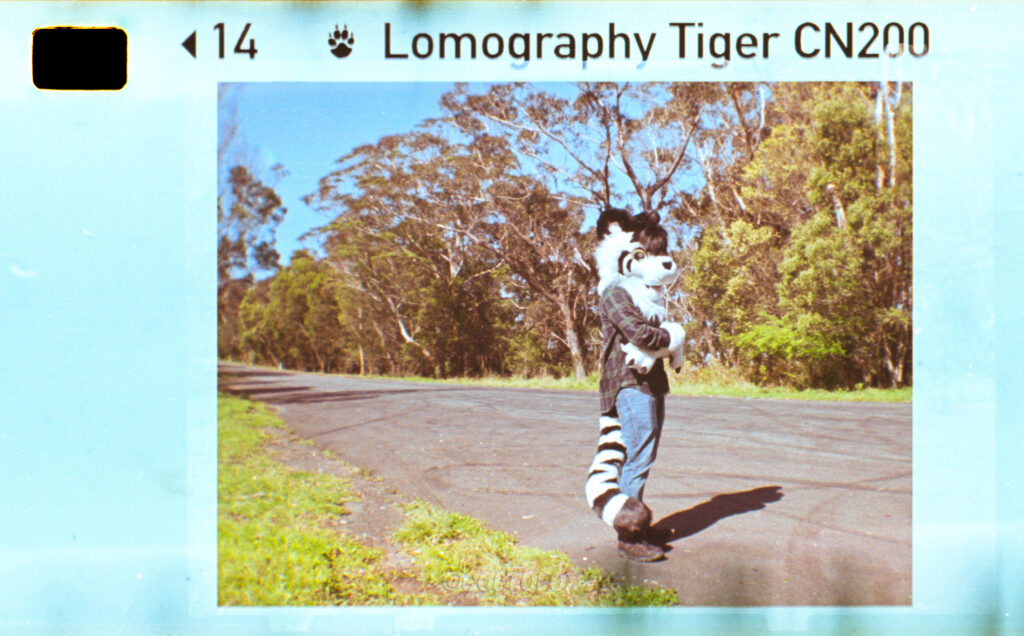
110 C-41
- Photographer: @coltofox
- Subject: @KivuliT
- Film: Lomography Tiger CN200
- Film Speed: 200
- Camera: Kodak Ektra 200
- Scanner: EPSON Perfection V600
